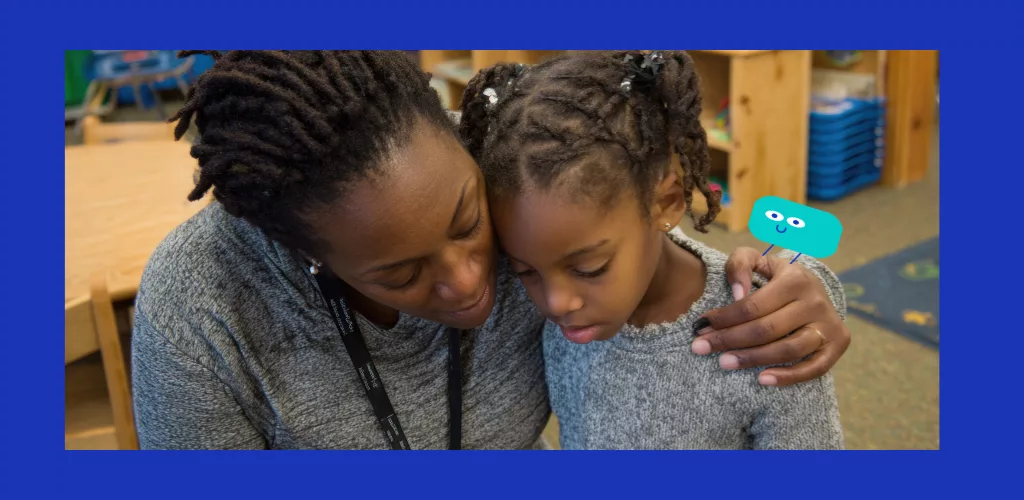Every year at the end of the school year, the same scenario plays out in families: the atmosphere becomes tense, diaries fill up with exam dates, and revision invades the house. Brevet, bac, CAP… these words are enough to trigger sighs, arguments, or heavy silences.
Between academic challenges, adolescent emotions, and our parental projections, this period can quickly become a minefield. What if we changed our stance to find balance? What if, instead of monitoring, controlling, and pressuring... we chose to support with confidence ?
Exams are not just a school test: they are a revelation.
The brevet or the baccalaureate are not only assessments of knowledge. They are also revealers of emotions, doubts, internal pressures... and sometimes charged parent-child interactions.
“They know they're being watched, expected to succeed, and talked about. It puts enormous pressure on them, even if they don't say anything.”
At 14, 16, or 17, our children don't yet have all the resources to manage this mental load. And that's where our role changes: we're no longer the pilots, but the co-pilots. Present, available, without taking the lead for them.
Why can parental controls backfire?
We think we're doing the right thing. We offer help, we monitor review time, we proofread the worksheets. But what the teen may perceive is mistrust. Doubt. Or even more pressure.
When a teenager feels like someone is with them, not against them, they let their guard down. And that's when they can ask for help.
The challenge is not to control what he does, but to build a relationship of trust in which he feels recognized and supported.
5 tips for supporting without suffocating
1. Creates a secure emotional climate
No need for words, only actions. Be available, welcome your emotions, respect silences without forcing discussion.
What you can say: “I'm here if you want to talk about it. If not, I can just bring you a snack.”
2. Value the effort, not the grade
Results don't always reflect investment. What matters is the process. Value consistency, rebounding after a slump, and the courage to get back to it.
Example: “I know it’s not easy for you to concentrate right now, but you’ve been hanging in there, well done.”
3. Trust your own pace
Not all teens study the same way. Some start late, others need a framework. The key is to respect how they work, without projecting our anxieties onto them.
Let go of the ideal schedule and focus on the relationship rather than the outcome.
4. Create breathing bubbles
Breaks aren't wasted time. They allow you to breathe, refocus, and regain confidence. They're essential for memory and stress management.
A walk, a quick game, a moment without screens or revision… just for fun.
5. Cultivate soft skills at home
Concentration, organization, confidence, stress management: all these behavioral skills are invaluable for getting through exam periods. And the good news is: they can be cultivated at home, in everyday life.
Planning together, talking about emotions, dealing with an upset… Every moment is an opportunity to grow.
“He’s not doing anything!”: understanding what’s behind it
Seeing your child slumped on the couch as the revision work piles up is frustrating. But before judging, let's ask ourselves a question: what does he need right now?
Sometimes they need to digest the information, to get their inner thoughts moving. It's not because they're not doing anything.
Maybe he's emotionally disconnected. Maybe he needs help structuring his work. Or maybe... he's procrastinating, like many teens. The key is to open a listening space, not a courtroom.
What if it doesn't go as planned?
You've put everything in place, and yet your teenager is cracking up? Is he getting upset, avoiding revision, or giving up at the last minute?
This is normal.
Parental support is not a guarantee of success. It is an assurance of emotional security.
And that's what makes all the difference. Because success isn't just about getting a grade on your baccalaureate. It's about the ability to get back on your feet, to know yourself, to find your way. And that's built through connection.
Things to remember
-
- Exams are an emotional challenge as much as an intellectual one.
- Accompanying is not monitoring: it is creating the conditions for trust.
- Psychosocial skills are major allies during this period
- Each teenager progresses at their own pace, with their strengths and weaknesses.
- The parent-child relationship remains the strongest foundation, regardless of grades
And above all…
As a parent, you don't need to be perfect: you just need to be there, with trust, kindness... and a little letting go. That's true success.




0 comments